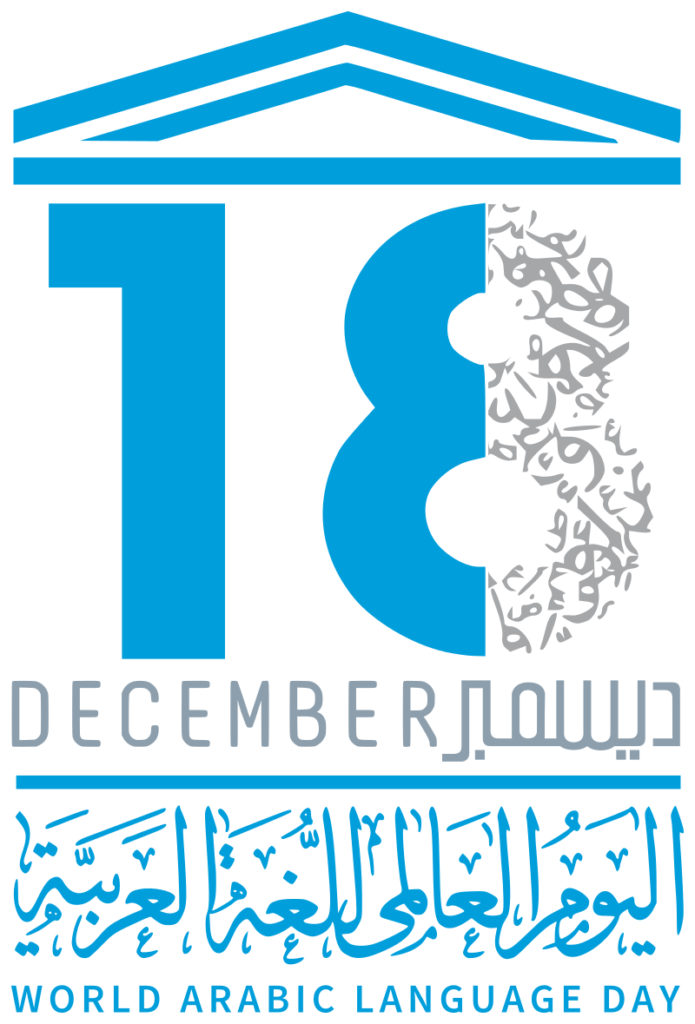World Arabic Language Day--December 18, 2023

UN Arabic Language Day, commemorated annually on December 18, traces its roots to the initiative established by the UN Educational, Scientific and Cultural Organization (UNESCO) in 2010. This observance aims “to celebrate multilingualism and cultural diversity as well as to promote equal use of all six of its official working languages throughout the organization.” December 18 was selected as a symbolic date for Arabic, marking the General Assembly’s pivotal decision in 1973 when Arabic became an official UN language.
The upcoming World Arabic Language Day in 2023 carries the theme “Arabic – The Language of Poetry and the Arts.” This theme emphasizes the profound impact and enduring beauty that the Arabic language has imparted through centuries of inspiring creativity in poetry and art. An invitation is extended to join in honoring the cultural richness embedded in the language, promising an insightful exploration of its influence and significance. Enthusiasts are encouraged to stay tuned for further details about this year’s celebration.
The Arabic language stands as a foundational element in the vast tapestry of global cultural diversity. Boasting a user base exceeding 400 million people, it ranks among the most widely spoken languages worldwide. Since 2012, World Arabic Language Day has been an annual tradition, occurring on December 18, commemorating the historic moment in 1973 when the United Nations General Assembly accorded Arabic the status of the sixth official language of the Organization.
Spanning diverse forms, from classical to dialectal expressions, and encompassing realms such as oral discourse, poetic calligraphy, and more, the Arabic language has been a wellspring of aesthetic brilliance. Its influence extends across various domains, including architecture, poetry, philosophy, and song. Beyond its linguistic facets, Arabic serves as a conduit to an extensive array of identities and beliefs, underscored by its historical interconnections with other languages.
The Arabic language played a pivotal role in the dissemination of knowledge, acting as a catalyst for the transmission of Greek and Roman sciences and philosophies during the Renaissance in Europe. Along the Silk Roads, it facilitated a dialogue of cultures, stretching from the Indian coast to the Horn of Africa.
On the occasion of World Arabic Language Day, UNESCO extends an invitation to celebrate not only a language but also a culture.
To attend the special UNESCO virtual event on December 18th, click here.
Compiled by Arab America
Visit our blog here!








